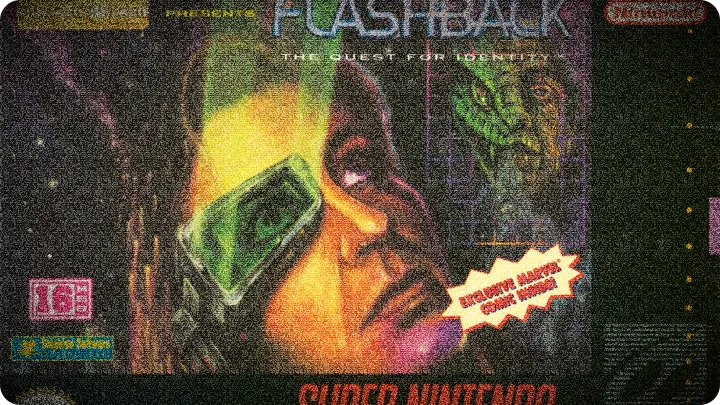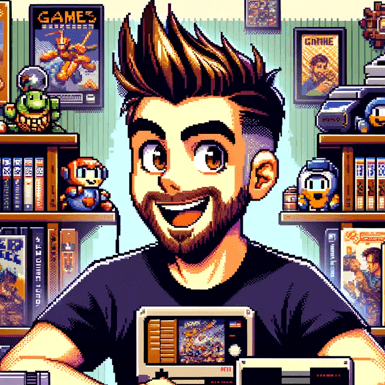 Before we blast into the jungle and jog our memory, a quick note — Flashback: The Quest for Identity was made by Delphine Software under Paul Cuisset. This is the same French team that created Another World. They refined the cinematic platforming style here, using rotoscoped animation and vector cutscenes to give Conrad fluid movement rarely seen in platformers. On CD systems you even get pre-rendered scenes and voice-overs; it feels almost like a playable sci-fi VHS.
Before we blast into the jungle and jog our memory, a quick note — Flashback: The Quest for Identity was made by Delphine Software under Paul Cuisset. This is the same French team that created Another World. They refined the cinematic platforming style here, using rotoscoped animation and vector cutscenes to give Conrad fluid movement rarely seen in platformers. On CD systems you even get pre-rendered scenes and voice-overs; it feels almost like a playable sci-fi VHS.
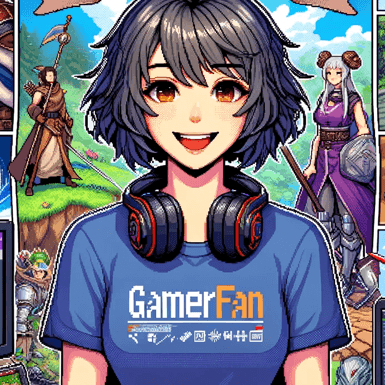 Insert the cartridge, check the controllers — and yes, their effort to merge film-like style with gameplay shows from the first jump. Even today, the game moves with steady pacing: measured runs, precise jumps, and puzzles tucked into a hostile planet.
Insert the cartridge, check the controllers — and yes, their effort to merge film-like style with gameplay shows from the first jump. Even today, the game moves with steady pacing: measured runs, precise jumps, and puzzles tucked into a hostile planet.
Gameplay Highlights
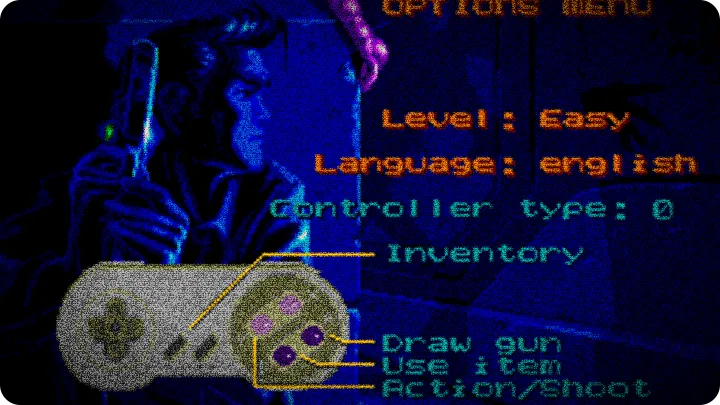
 Tone-wise we’d slot this one as a B. It delivers smooth animation, tense set-pieces, and strong ambition. But it also asks a lot from the player in ways that sometimes feel unfair — and the large levels can wear you down. Celebrate the wins, but be honest about the rough edges.
Tone-wise we’d slot this one as a B. It delivers smooth animation, tense set-pieces, and strong ambition. But it also asks a lot from the player in ways that sometimes feel unfair — and the large levels can wear you down. Celebrate the wins, but be honest about the rough edges.
 Starting out in the jungle, the controls feel weighty. Conrad’s run-and-jump has momentum. He can hang from ledges, roll, crawl, and pull off a slow-motion dive when a mistimed jump forces improvisation. Enemies are varied, and grenades, stones, and tools give options beyond just shooting.
Starting out in the jungle, the controls feel weighty. Conrad’s run-and-jump has momentum. He can hang from ledges, roll, crawl, and pull off a slow-motion dive when a mistimed jump forces improvisation. Enemies are varied, and grenades, stones, and tools give options beyond just shooting.
 Gameplay highlights include the animation — every small action feels alive thanks to hand-animated realism — and the level design. Areas loop back on themselves, hiding paths and switches that reward exploration. Training your reflexes pays off when you chain a run, grab, climb, and swing past a turret without losing a shield bar.
Gameplay highlights include the animation — every small action feels alive thanks to hand-animated realism — and the level design. Areas loop back on themselves, hiding paths and switches that reward exploration. Training your reflexes pays off when you chain a run, grab, climb, and swing past a turret without losing a shield bar.
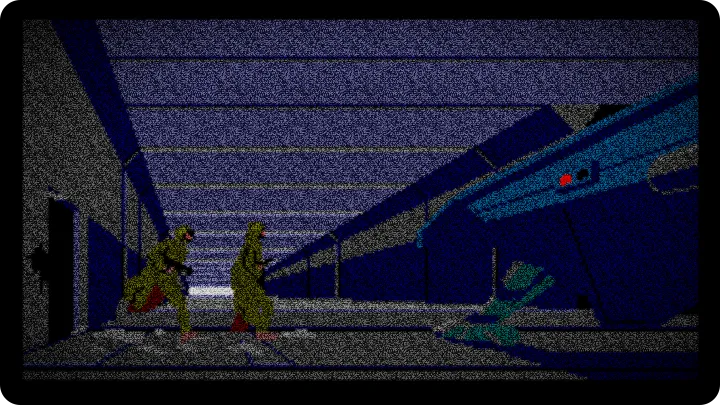
Hot Tips from the couch
- Conserve shield stations: Shields recharge at stations. Use them sparingly and memorize where they are; the game can be stingy at key moments.
- Use objects creatively: Stones and other pick-ups can distract or disable foes. Not every room needs to be a firefight.
- Master the roll: Rolling under fire and through tight gaps is essential — practice timing it right after a crouch.
- Search thoroughly: Some keys and paths hide behind destructible scenery or require talking to NPCs — exploration is rewarded.
 The puzzles are a good counter to the action. You often need to talk to characters or use devices to move forward, giving levels an adventure-game feel. The narrative beats — recovering Conrad’s memory — are scattered through the action, so every piece of information feels earned.
The puzzles are a good counter to the action. You often need to talk to characters or use devices to move forward, giving levels an adventure-game feel. The narrative beats — recovering Conrad’s memory — are scattered through the action, so every piece of information feels earned.
 There are frustrating moments. Hit detection around ledges can be tricky, and tough enemy placement forces repeated retries. The lack of checkpoints in long sections means one mistake can waste time. Still, when you pull off a flawless sequence, the sense of accomplishment is real.
There are frustrating moments. Hit detection around ledges can be tricky, and tough enemy placement forces repeated retries. The lack of checkpoints in long sections means one mistake can waste time. Still, when you pull off a flawless sequence, the sense of accomplishment is real.
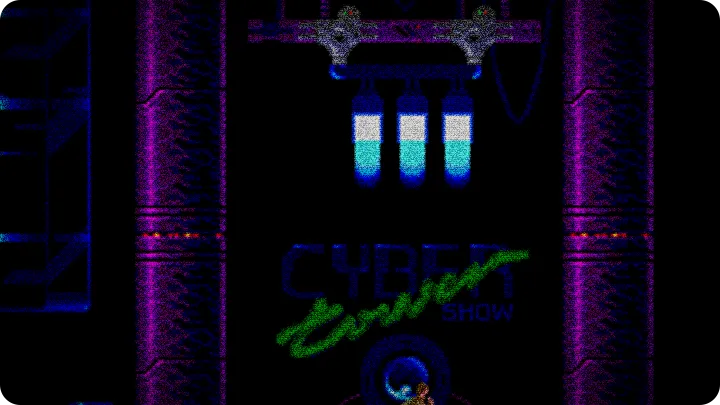
Memorable Moments & Anecdotes
 Memorable moments stack up. The early bike crash sets the tone. Sneaking past alien patrols with low shields makes a simple corridor feel cinematic. In one underground lab, dim lighting, muted music, and sudden enemies create one of the most suspenseful sections I’ve seen in a platformer this year.
Memorable moments stack up. The early bike crash sets the tone. Sneaking past alien patrols with low shields makes a simple corridor feel cinematic. In one underground lab, dim lighting, muted music, and sudden enemies create one of the most suspenseful sections I’ve seen in a platformer this year.
 And the final boss — what a test of everything Flashback demands. It mixes pattern recognition, tough jumps, and endurance. You dodge heavy fire, platform across moving girders, and attack in small windows. It’s not cheap, but it’s a gauntlet that rewards focus and memorization. On our second attempt we cracked the pattern and took it down; the win felt earned.
And the final boss — what a test of everything Flashback demands. It mixes pattern recognition, tough jumps, and endurance. You dodge heavy fire, platform across moving girders, and attack in small windows. It’s not cheap, but it’s a gauntlet that rewards focus and memorization. On our second attempt we cracked the pattern and took it down; the win felt earned.
 Anecdote while we reload: I once stalled for time trying to decipher a terminal puzzle and ended up discovering a hidden maintenance tunnel that led to a stash of shields. That felt like a reward for curiosity rather than trial — exactly the kind of design choice I appreciate. On the other hand, there are a few rooms where a single stray shot can knock you into an insta-death pit, which makes me grumble into my foam-covered controller.
Anecdote while we reload: I once stalled for time trying to decipher a terminal puzzle and ended up discovering a hidden maintenance tunnel that led to a stash of shields. That felt like a reward for curiosity rather than trial — exactly the kind of design choice I appreciate. On the other hand, there are a few rooms where a single stray shot can knock you into an insta-death pit, which makes me grumble into my foam-covered controller.
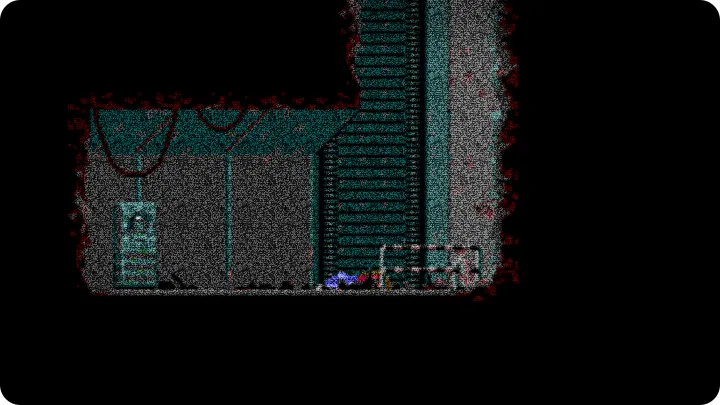
 The presentation is a huge plus. Vector cutscenes sell the sci-fi atmosphere; the music and effects, while minimalist, accentuate the game’s tension. On CD systems the voice-overs give Conrad a voice and the world a bit more personality — though the cartridge versions keep the core experience sharp without it.
The presentation is a huge plus. Vector cutscenes sell the sci-fi atmosphere; the music and effects, while minimalist, accentuate the game’s tension. On CD systems the voice-overs give Conrad a voice and the world a bit more personality — though the cartridge versions keep the core experience sharp without it.
Final Thoughts
 In short, Flashback is ambitious and often brilliant. Its cinematic ambitions and polished animation set it apart, and the blending of platforming with puzzles and exploration makes it more than a run-and-shoot. Expect patience, expect repetition, but also expect some genuinely memorable platforming sequences.
In short, Flashback is ambitious and often brilliant. Its cinematic ambitions and polished animation set it apart, and the blending of platforming with puzzles and exploration makes it more than a run-and-shoot. Expect patience, expect repetition, but also expect some genuinely memorable platforming sequences.
 Final verdict from the couch: B. Strong presentation and thoughtful design carry it far, but the occasional unfair trial-and-error and checkpoint sparseness hold it back from greatness.
Final verdict from the couch: B. Strong presentation and thoughtful design carry it far, but the occasional unfair trial-and-error and checkpoint sparseness hold it back from greatness.
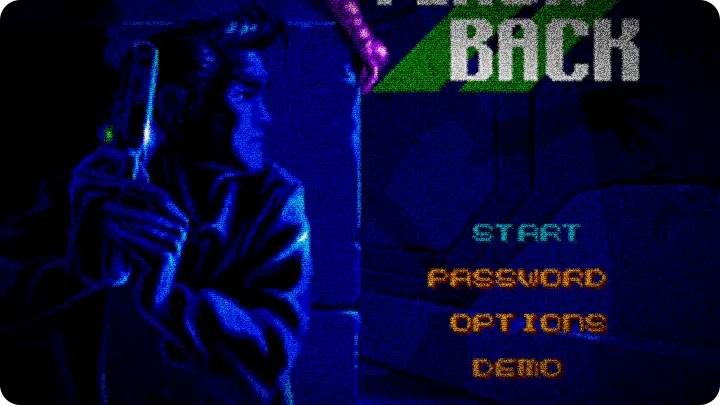
more info and data about Flashback: The Quest for Identity provided by mobyGames.com

